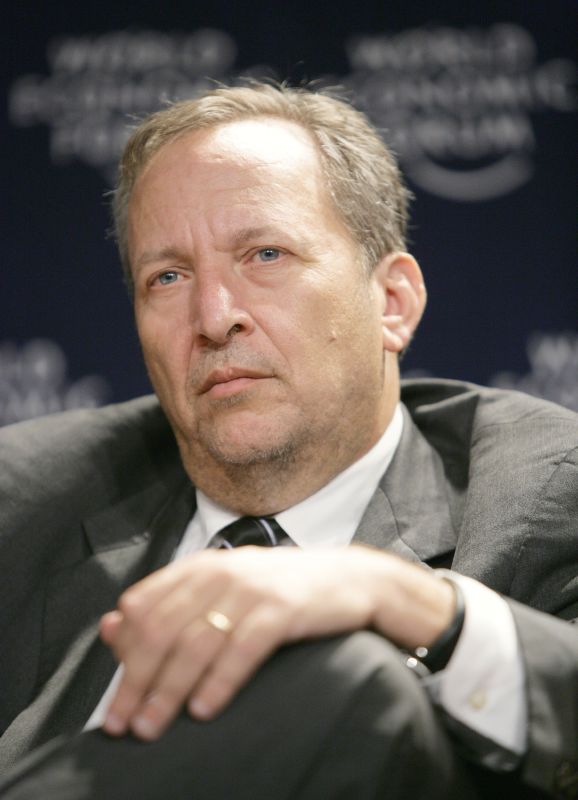- Blog
- Fed-Up with Larry Summers
Fed-Up with Larry Summers

Donate Now!
Your contribution will benefit Friends of the Earth.
Stay Informed
Thanks for your interest in Friends of the Earth. You can find information about us and get in touch the following ways:
There are just some public officials who won’t go away.
Exhibit A: President Obama’s former director of the National Economic Council and the former secretary of treasury under President Clinton, Lawrence H. Summers.
This time around, President Obama is considering whether to appoint Larry Summers to head the Federal Reserve, perhaps the country’s most preeminent appointment on economic matters. Summers would have a global pedestal to push his brand of failed market fundamentalism. His argument for his appointment is basically: Don’t worry. I am a very intelligent economist and a loyal Democrat. Trust me; we can employ market mechanisms the right way.
Rightfully, progressives and many members of the Democratic Party have been raising red flags (so much so that President Obama recently felt compelled to defend Summers in a meeting with the House Democratic Caucus). Their concerns are more than justified. Larry Summers’ record in office is littered with bad decisions. We are now paying the price for his favoring of Wall Street over working families.
During the Clinton years, he unabashedly took the side of big corporations and the financial industry. He opposed the regulation of derivatives, which even Bill Clinton admitted was a mistake after the financial crisis.
He supported the successful repeal of the Glass-Steagal Act, a long-standing law that separated investment and commercial banking. The repeal helped facilitate casino-like gambling on Wall Street and led to the recent taxpayer big bank bailout. Summers supported the North American Free Trade Agreement, which has severely undermined environmental regulations and the bargaining power of American workers.
More recently, Summers actively sought to impede the implementation of the Volcker Rule, which would have tamped down on bank speculation, and he helped convince President Obama not to support a financial transaction tax, a micro-tax on Wall Street trading that would curb harmful speculation and raise hundreds of billions of dollars of new revenue to pay for urgently-needed public goods and service.
During his tenure as chief economist at the World Bank, he oversaw economic liberalization and structural adjustment programs that devastated lives and livelihoods throughout developing countries. Poor countries were required to shift money from health, education and other social programs to foreign debt repayment. In other words, the policies he drove made poor people poorer. And, shockingly, he penned a memo at the World Bank (an institution with a tagline — “working for a world free of poverty”) asserting that “under-populated countries in Africa are vastly underpolluted,” and advocated the dumping of toxic waste in “the lowest wage country.”
Summers also argued against aggressive climate action during both the Clinton and Obama administrations.
Furthermore, he gained notoriety for his sexism during his tenure as president of Harvard University, where he openly questioned whether women were genetically capable to study math and science!
My take on Larry Summers is that he is a financial disaster waiting to happen. This is based not only on his record but also on my personal experience. When I met Summers in June 2010 at a White House meeting to discuss international finance for climate change adaptation and mitigation in developing countries, I observed that he was extremely intelligent but overly sure of himself. His penchant for market fundamentalism was clear even at that meeting. We butted heads about his rigorous down-playing of the need for public money to fight the climate crisis in developing countries. He believed that markets and private finance held the key to the climate change problem in poor countries. But many areas in need of funding, especially adaptation efforts in the poorest countries, simply will not turn a profit. And while there may be more money to be made in mitigation, low income countries are far less likely to have high mitigation potential (least developed countries have among the world’s lowest per capita greenhouse gas emissions) and economies of scale big enough to attract much private finance.
Summers was wrong in that conversation, just as he has been wrong so many other times.
While my mind isn’t made up about who the right choice is for Federal Reserve Chairperson, I do know the wrong one: Larry Summers.
This article was also published on the Huffington Post.
